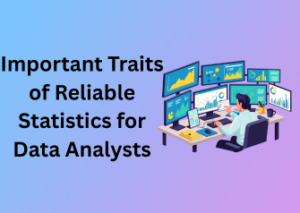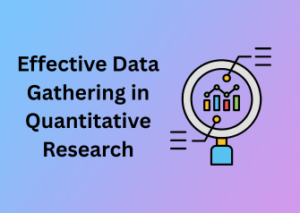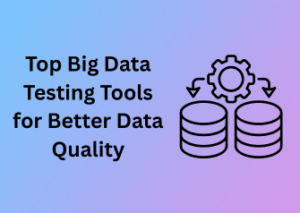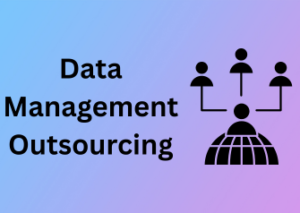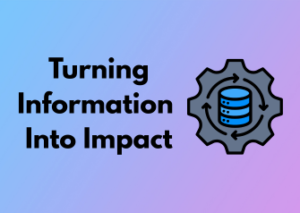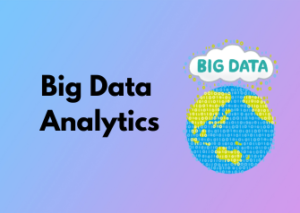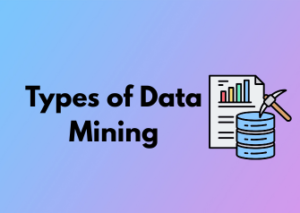When it comes to market research in Pakistan, several companies have cemented their reputation as leaders, shaping the industry and delivering results that help businesses make confident, data-driven decisions. Let’s take a closer look at some of the top players in the field and explore what makes them stand out.
A Strong Track Record of Excellence:
Among the prominent market research companies in Pakistan, a few names consistently make waves, thanks to their proven track record of delivering quality insights. Organizations like Gallup Pakistan and IPSOS Pakistan are household names when it comes to reliable consumer insights and political surveys. They’ve set a gold standard with their ability to analyze complex data and turn it into actionable strategies for businesses. Not only are their reports thorough, but their accessible approach also gets to the heart of what businesses need to know to succeed.
What makes these companies reliable? It’s their use of robust methodologies, cutting-edge technologies, and skilled teams trained to tackle challenges unique to the Pakistani market. Whether you’re looking for customer satisfaction data, public opinion, or niche retail insights, they have the tools and expertise to deliver.
Homegrown Firms Making Their Mark:
It’s also worth mentioning that local, homegrown research companies are playing a crucial role in the Pakistani market research landscape. Brands like Omar Associates Research and Pulse Consultant are leveraging their deep understanding of cultural and regional contexts to provide tailored insights that multinational giants sometimes miss.
These domestic leaders marry global research standards with a nuanced understanding of Pakistan’s multifaceted population. Since many of these firms employ researchers from the regions they study, their findings are often more representative of localized realities. This knowledge adds another layer of trustworthiness and credibility to their reports.
Importance of Global Versatility:
In addition to local players, several international companies with a presence in Pakistan are also shaping the research space. Firms like AC Nielsen offer data that provides a global perspective, allowing businesses to compare Pakistan’s trends with international benchmarks. This global-versus-local dynamic fosters a competitive landscape that benefits clients, as companies strive to deliver innovative and relevant analyses.
Specialty Firms Catering to Niche Needs:
Some firms have opted to specialize in specific areas, positioning themselves as leaders in fields like retail analytics, brand audits, or employee engagement surveys. Niche providers, such as Synergy Group or Gallop Research Services, can offer expertise tailored to the type of project you’re pursuing. If you’re exploring a specific market segment – for instance, the booming fintech industry in Pakistan – these specialized companies are often the best bet to get hyper-focused insights.
Acknowledging the Power of People:
Ultimately, what separates top-tier market research firms from the rest is their people. The true value comes from skilled researchers, data scientists, and consultants who combine their intellectual curiosity with technical know-how to better understand the behaviors, opinions, and aspirations of Pakistani consumers. After all, even the most advanced tools and software can’t compensate for a lack of empathetic analysis and creative problem-solving.
- For businesses just entering the market: Look for companies with a strong understanding of Pakistan’s diverse regions and demographics.
- For established players seeking growth: Partner with firms doing cutting-edge work in emerging sectors such as e-commerce or digital payments.
- When seeking innovation: Opt for research teams that blend local expertise with global practices.
Regional Insights: How Local Firms Add Value
When it comes to understanding Pakistan’s dynamic market, local research firms hold a unique edge. Operating in a diverse country like Pakistan requires more than just standard research methods—it demands regional insights, cultural sensitivity, and deep ties to the local context. This is where local market research companies truly shine. Let’s explore why partnering with these homegrown firms can lead to more impactful data and smarter decision-making for your business.
The Advantage of On-the-Ground Knowledge
One of the biggest reasons local firms bring added value is their exceptional understanding of the regions they work in. Pakistan is not a monolith. Each province, from Punjab to Sindh, Khyber Pakhtunkhwa to Balochistan, has its unique preferences, consumer behavior, and socio-economic dynamics. A local research company is well-acquainted with these subtleties. They know how to speak the language literally and figuratively and use that knowledge to gather nuanced data that larger international firms often overlook.
Cultural Context: The Unseen Layer of Insight
Here’s a pro tip for successful market research in Pakistan: context matters. Whether it’s understanding how cultural values shape purchasing decisions in rural areas or navigating urban consumers’ brand loyalty dynamics, local firms are experts at uncovering hidden cultural drivers. For instance, they understand what resonates with a Karachi-based office worker versus an agricultural entrepreneur in Multan. This level of cultural intelligence is invaluable when you’re trying to tailor products or services to specific audiences across Pakistan.
Access to Hard-to-Reach Markets
Another key strength of regional market research companies lies in their ability to reach underserved or remote markets. While multinational agencies may face challenges accessing certain rural pockets of the country, local firms already have established field teams and community networks. These connections make it much easier to collect data in areas with limited infrastructure or resources. If you’re seeking comprehensive national insights, a local partner provides the reach you really need.
Cost-Effective Solutions Tailored to Local Budgets
Let’s talk business—you want solid insights without draining your budget. Here’s the good news: local firms tend to offer more affordable market research services compared to international agencies. They understand the cost constraints of regional players and often customize their services accordingly. By using local resources, such as field teams and ecosystem partners, they reduce operational costs while still providing high-quality research results. This makes regional companies an attractive choice for businesses of all sizes, particularly startups and SMEs eyeing growth in Pakistan.
Collaboration and Long-Term Partnerships
One aspect that’s often underappreciated is the long-term value of working with a local research company. Their proximity allows for easier collaboration, quicker responses, and more flexibility when adjusting scopes. Over time, these partnerships grow stronger, with the firm gaining deeper insights into your industry and market position. This continuity can be a game-changer, helping your company stay ahead in an ever-evolving marketplace.
Why Local Expertise Wins
- Deep cultural understanding leads to more accurate data.
- Ability to access rural and urban markets alike.
- Cost-effective alternatives tailored to your needs.
- Strong collaboration opportunities for sustained success.
Industry Specializations: What Sectors Are Covered?
When it comes to market research in Pakistan, one size definitely does not fit all. The nation’s economy is wonderfully diverse, and so are the research needs of businesses operating here. From fast-moving consumer goods (FMCGs) to the booming tech sector, market research companies in Pakistan have mastered the art of tailoring their services to different industries. Let’s dive into the most prominent sectors they cater to and why it matters to you as a business.
Consumer Goods and Retail
This is hands down one of the most significant segments for market research companies in Pakistan. With urbanization on the rise and a young, dynamic consumer base, companies dealing in FMCGs, apparel, and retail chains need actionable insights constantly.
- Why it’s critical: Understanding consumer behavior, shopping preferences, and local trends can make or break a marketing strategy. Market research firms help brands stay ahead of shifting consumer needs by conducting surveys, focus groups, and sales data analysis.
- Key research areas: Brand loyalty, pricing strategies, and regional distribution needs.
Technology and Telecommunications
Proud owner of over 180 million mobile phone subscribers, Pakistan is witnessing rapid digital transformation. From e-commerce platforms to fintech services, market research firms have been fundamental in helping tech companies make informed decisions.
- Why it’s booming: Whether it’s gauging internet penetration in rural areas or assessing the adoption of new apps, targeted research is key to growth in this sector. The competition is fierce, and accurate data can yield massive competitive advantages.
- Key research areas: Digital adoption, customer satisfaction, and user experience (UX).
Healthcare and Pharmaceuticals

As health awareness improves and accessibility to medical care expands, healthcare companies turn to market research to better align their offerings with public demand. Pharmaceutical companies particularly depend on local insights for drug launches and pricing strategies.
- Why it’s essential: With a mix of public and private healthcare systems in Pakistan, research helps organizations understand patient demographics, treatment preferences, and healthcare infrastructure challenges.
- Key research areas: Disease prevalence, healthcare accessibility, and brand recognition of medical products.
Agriculture and Agri-Business
No discussion about Pakistan’s economy can be complete without mentioning agriculture—it contributes about 20% to the GDP. Market research helps agribusinesses tackle challenges like water management, supply chain optimization, and market demand forecasting.
- Why it stands out: This sector’s developmental needs are unique, requiring both grassroots-level data and broader economic insights.
- Key research areas: Crop pricing, farmer behavior, and export potential of agricultural goods.
Real Estate and Construction
Pakistan’s urban expansion and focus on infrastructure projects have led to a thriving real estate and construction industry. Investors, developers, and brokers often turn to market research firms to understand property trends and buyer expectations.
- Why it’s growing: As mortgage financing gains traction and urban migration increases, the demand for real estate insights has surged.
- Key research areas: Real estate investment trends, construction materials demand, and macroeconomic impact on property pricing.
Why Industry Specialization Matters
The beauty of working with experienced market research companies is that they understand that every industry is its own world, with unique challenges and opportunities. Finding a research partner who specializes in your sector ensures that the data is not just accurate but also relevant. Specialized research firms in Pakistan dive deep into your industry’s nuances to deliver insights that can drive real impact.
Innovative Approaches Redefining Research Standards
The market research industry in Pakistan is experiencing a transformation, and it’s all thanks to the wave of innovative approaches being adopted by leading research companies. From advanced technological tools to reimagined methodologies, these companies are elevating the standards of research and delivering more precise, actionable insights to their clients. So, what makes this shift so exciting? Let’s dive into some of the standout innovations redefining how market research is conducted in Pakistan.
Leveraging Technology for Deeper Insights
Gone are the days of entirely manual surveys and basic questionnaires. Thanks to the adoption of Artificial Intelligence (AI) and Big Data Analytics, research firms in Pakistan are uncovering trends and consumer patterns with unmatched accuracy and efficiency.
- AI-Driven Analysis: AI tools can sift through massive datasets to predict consumer behavior and market shifts. For instance, chatbots powered by AI are being used for real-time data collection, making the process faster and more cost-effective.
- Real-Time Analytics: Pakistani companies are using platforms that provide real-time insights, allowing organizations to react quickly to evolving market conditions.
- Social Listening Tools: Monitoring online conversations on social platforms is becoming a game-changer for understanding public sentiment about products, brands, or industries.
Human-Centered Research Methods
While technology is taking center stage, research companies in Pakistan appreciate the importance of understanding the human side of data. They’re introducing unique, qualitative approaches that go beyond numbers to uncover the “why” behind customer actions.
- Ethnographic Studies: Researchers are spending time with consumers in their environments to understand cultural nuances and behaviors, especially in Pakistan’s diverse population.
- Focus on Emotional Metrics: Techniques such as facial emotion recognition during product testing help companies evaluate how consumers genuinely feel about offerings.
- Gamification: Turning surveys into engaging, user-friendly experiences through games ensures higher levels of participation and quality responses.
Mobile-First Strategies
With mobile phone adoption skyrocketing in Pakistan, market research firms are moving to mobile-friendly tools to reach consumers where they are most active.
- Mobile Surveys: Easy-to-use mobile surveys are gaining traction, particularly in reaching younger demographics.
- SMS-Based Feedback: For regions without internet access, SMS has emerged as a reliable way to gather data.
- Geo-Targeting: Mobile technologies now allow researchers to collect area-specific data, crucial for brands targeting local markets.
Hybrid Research Models
Pakistan’s leading firms are blending quantitative and qualitative methods for a more comprehensive picture. Hybrid models combine statistical analysis with in-depth exploration, offering clients high-quality insights tailored to complex business challenges.
Virtual and Augmented Reality (VR/AR)
One of the most exciting developments in Pakistan’s research industry is the application of Virtual Reality (VR) and Augmented Reality (AR). Whether it’s simulating shopping experiences to test store layouts or showcasing virtual prototypes of products, VR and AR technologies help remove guesswork and validate consumer preferences in a controlled yet realistic setting.
Why These Innovations Matter for Businesses
These cutting-edge approaches ensure that businesses operating in Pakistan receive insights that are not only accurate but also actionable and timely. By adopting these innovations, research companies are equipping brands with the tools to stay ahead of their competition in an increasingly dynamic market.
Costing and Budget Considerations: Market Research in Pakistan
Hello there! If you’ve been delving into market research in Pakistan, one of the key questions you’re probably asking yourself is, “How much is this going to cost me?” Don’t worry; we’re here to break it all down for you. Let’s navigate through the key considerations when it comes to budgeting for market research in Pakistan. Whether you’re a budding entrepreneur or a massive enterprise, understanding where your money is going and how to spend it wisely can make a world of difference.
Why Understanding Costs Is Vital
First things first: market research is an investment. It gives you valuable insights about customers, competitors, and market potential. However, not all businesses allocate resources correctly when it comes to budgeting. Why? Simply put, cost estimations can vary significantly depending on the type of research, the scope of work, and the specific research firm you collaborate with.
If you don’t plan your budget carefully, you might find yourself overspending or cutting corners where it truly matters. On the flip side, understanding costs means you can choose where to spend strategically, ensuring you get the best return on your investment (ROI).
Breaking Down Market Research Costs
Here’s a friendly breakdown to help you understand the various components that usually factor into your market research budget:
- Type of Research: Whether you’re opting for qualitative research (such as focus groups) or quantitative methods (like surveys and polls) will significantly affect the cost. Qualitative research can often be more labor-intensive and, as a result, more expensive.
- Sample Size: The larger the audience you want to study, the higher the cost. For example, conducting nationwide surveys spanning multiple regions in Pakistan will command a larger budget compared to targeting a narrow demographic in specific urban centers like Karachi or Lahore.
- Customization: Tailored solutions that fit your exact business requirements will typically require more expertise, time, and resources than standardized offerings—and this comes with additional costs.
- Research Tools: The choice of tools—such as software for data analytics, online survey platforms, or even AI-powered methodologies—can impact the final bill. Pakistani market research firms increasingly use innovative technologies, but expect additional charges if you need advanced analytics.
- Reporting Needs: Want custom dashboards, in-depth presentations, or graphical storytelling? Detailed reporting may splurge your budget compared to a simple written summary.
Budget Tips for Businesses of All Sizes
No two organizations are the same, so your budget strategy should be tailored accordingly. Here are a few tips to guide you:
- Start Small: If you’re a startup or a smaller firm, focus on one or two key insights. You don’t have to go all out at the beginning—invest where it matters most.
- Get Quotes: Always seek multiple quotes from research firms in Pakistan. This gives you a better sense of the price range and helps you assess what you’ll get for your money.
- Be Clear About Your Goals: Clearly define the objectives of your research. Vague requirements can lead to wasted budgets, as additional resources are often spent deciphering unclear goals.
- Leverage Local Expertise: Pakistani firms often offer affordable services compared to international counterparts, and their understanding of local markets is second to none.
- Evaluate ROI: Before finalizing a budget, always ask yourself: `What am I expecting to gain from this research, and how will it impact my business?
Balancing Cost and Value
At the end of the day, cost shouldn’t be the only deciding factor. Yes, it’s important to have a realistic budget, but the value of actionable insights like identifying market trends or understanding consumer needs goes beyond just rupees and paisas! A well-researched strategy can unlock opportunities that far outweigh the initial investment.
So, as you consider your options for market research in Pakistan, remember to strike a balance between what you spend and what you stand to gain. Invest wisely, and you’ll likely reap the rewards in measurable business success.
Challenges and Opportunities in the Pakistani Market
The Pakistani market is a fascinating space full of potential and promises for brands willing to explore. However, like every dynamic market, it comes with its own set of challenges and opportunities. This unique landscape offers a blend of culture, preferences, and rapidly evolving consumer behaviors. Let’s dive into some of the key challenges businesses face and the exciting opportunities waiting to be seized.
Challenges in the Pakistani Market
Running market research in Pakistan isn’t always a walk in the park. Here are some notable hurdles:
- Diverse Consumer Base: Pakistan boasts a population exceeding 240 million, spread across urban hubs and rural areas. This diversity is splendid but challenging when it comes to understanding varying needs, purchasing power, and cultural nuances.
- Limited Digital Penetration in Rural Areas: While urban centers like Karachi and Lahore are thriving with digital connectivity, rural areas still struggle with limited access. For research firms, this means relying on traditional methods, which can be time-consuming.
- Economic Instability: Currency fluctuations and inflation impact consumer purchasing trends. Researchers need to account for these variables, as they can obscure clear-cut insights into market behavior.
- Data Collection Barriers: Privacy concerns, distrust of data-sharing, and low literacy rates in some regions make data collection a sensitive task. Researchers must tread carefully to ensure authenticity while respecting local values.
- Regulatory and Compliance Issues: Navigating the legal framework in Pakistan, from data protection laws to licensing, can be complex, often needing a localized approach.
Opportunities in the Pakistani Market
Despite the challenges, there’s undeniable potential in Pakistan, offering a golden opportunity for businesses ready to innovate and adapt. Here’s why:
- Young and Growing Population:
With over 60% of the population under the age of 30, Pakistan’s youth play a significant role in shaping consumer trends. Tech-savvy, aspirational, and open to global influences, this demographic provides fertile ground for trend-driven marketing and modern businesses. - Untapped Rural Markets:
While urban regions are often saturated, rural areas remain a largely untapped market. Companies investing in rural market studies may discover promising avenues for growth in agriculture, FMCG, and low-cost tech solutions. - Growing Digital Economy:
Initiatives like the Digital Pakistan Vision are paving the way for increased digital adoption. This opens doors for e-commerce platforms, fintech innovations, and digital-first research methodologies to take root. - Higher Reliance on Local Brands:
While international brands dominate urban households, rural consumers gravitate towards local names they trust. Developing customized, community-friendly market strategies can unlock growth in these regions. - Support for Startups and SMEs:
Pakistan’s startup ecosystem is flourishing, particularly in sectors like tech, agriculture, and logistics. Research firms can support these businesses with cost-efficient market insights to help them stand out in competitive sectors.
Advice for Tapping Into Opportunities
Here’s the silver lining: while the challenges may seem intimidating, savvy market research can turn them into stepping stones for success. Here are a few tips:
- Stay Local: Partner with local research agencies or experts who understand the nuanced market dynamics.
- Embrace Hybrid Research Methods: Combine traditional surveys with digital tools for balanced and actionable insights.
- Cultural Sensitivity is Key: Tailor your research strategies to respect cultural values and build trust among respondents.
- Invest in Long-Term Relationships: Find ways to contribute to community growth, especially in rural markets. Engagement fosters loyalty.
How to Choose the Best Partner for Your Market Research
Choosing the right market research partner is a critical step in ensuring the success of your business decisions. Whether you’re about to enter a new market or gain insights into customer behavior, your research partner can make or break the process. Let’s walk through some essential factors to consider when selecting a firm in an approachable and straightforward way.
Understand Your Goals First
Before you even begin your search, it’s crucial to identify what you need from the market research. Are you looking to understand customer preferences, size a market opportunity, or benchmark competitors? Knowing exactly what you need will not only save time but also help potential partners pitch their expertise in a way tailored to your needs.
Write down your priorities and have a clear set of questions you want answered. This will also help you evaluate how well a firm’s capabilities align with your goals.
Look for Industry Experience
Not all market research companies are created equal, and expertise varies widely between industries. If your business is in a niche sector—like pharmaceuticals, e-commerce, or agriculture—find a firm with a track record in your field. An experienced partner will already know the unique challenges, regulations, and trends that shape your industry, allowing them to deliver more accurate and actionable insights.
Ask about previous projects or request case studies specific to industries similar to yours—it’s a simple but powerful way to gauge their experience.
Evaluate Their Research Methodologies
The best market research firms don’t take a one-size-fits-all approach. Instead, they apply the right tools and methods based on your specific objectives. Whether it’s qualitative techniques (like focus groups and in-depth interviews) or quantitative analysis (using surveys, big data, etc.), the methods should suit your needs.
Ask potential partners detailed questions about how they conduct research. How do they recruit participants? What data sources do they use? Are their tools up-to-date and aligned with global trends? Ensuring transparency here is vital.
Check for Local Expertise
If your focus is on a specific region in Pakistan, working with a firm that has a boots-on-the-ground presence or a strong understanding of the local market is a huge advantage. Local expertise ensures cultural nuances, language barriers, and regional distinctions are taken into account.
For a country as diverse as Pakistan, understanding differences across cities and provinces is key. A Lahore-based solution might not fit Karachi, and local insight bridges the gap.
Communication and Collaboration Are Key
You want a partner who treats you as more than just another client. Effective communication, regular updates, and a team that integrates well with your own are non-negotiables. This helps maintain alignment throughout the process and encourages collaborative problem-solving as challenges arise.
During preliminary discussions, gauge how responsive and proactive they are. Do they take the time to truly understand your needs, or do they rely on cookie-cutter proposals?
Pricing Transparency
Price is, of course, a huge factor, but it’s important to think beyond costs. Avoid firms that promise suspiciously cheap rates—it could be a sign of limited capabilities or compromising quality. Instead, look for transparent pricing structures where every dollar spent is clearly accounted for.
A good research partner will explain their pricing and help you understand the return on investment (ROI) their insights will provide.
Reviews and Recommendations
Lastly, don’t forget to check reviews, testimonials, and references. Past clients are often the best sources for understanding what it’s like to work with a specific company. Honest feedback can provide insights into a firm’s strengths, weaknesses, and overall reliability.
If you can, reach out to another business that has worked with the firm to get a first-hand perspective.




